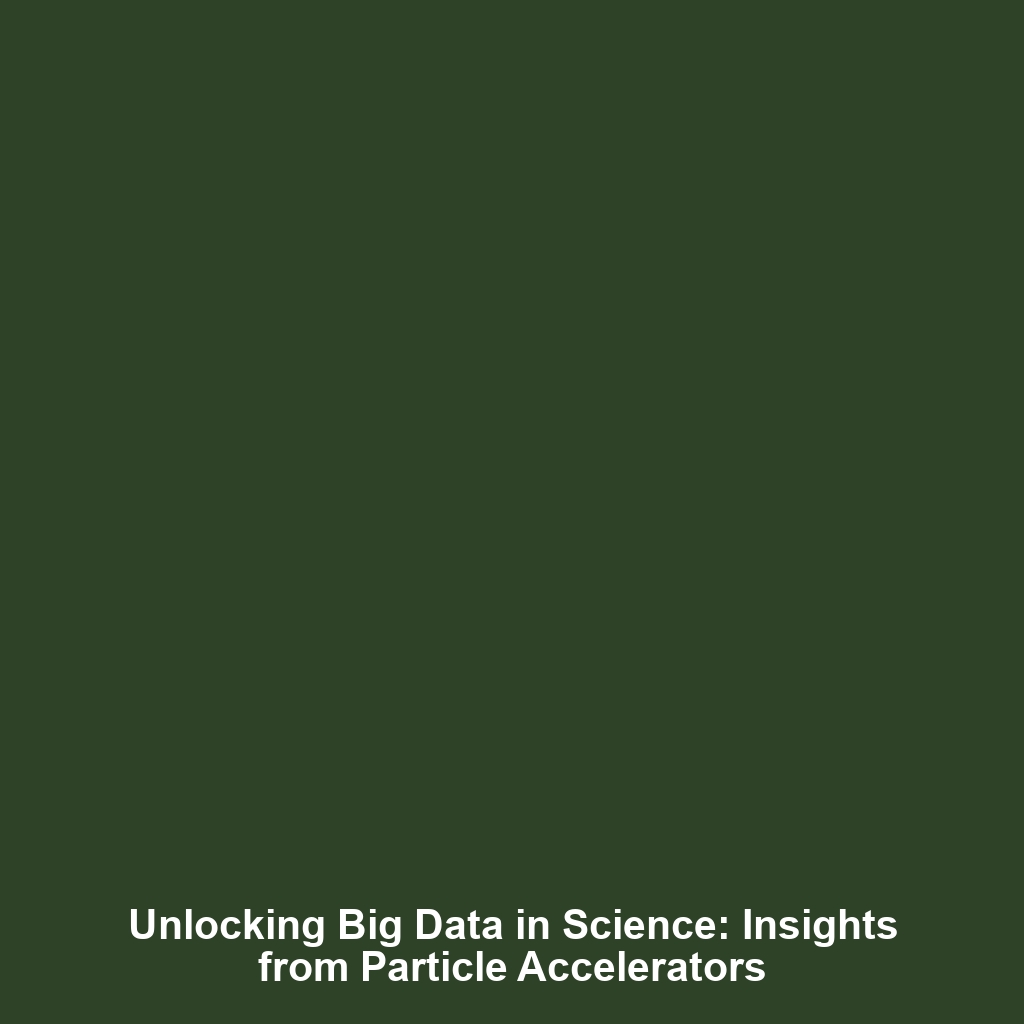Data from Particle Accelerators: A Big Data Perspective
Introduction: In the realm of Big Data in Science, data from particle accelerators represents a transformative force shaping our understanding of fundamental physics. These sophisticated instruments collect vast amounts of data that are crucial for advancing scientific knowledge and pushing the boundaries of research in subatomic particles. With an exponential increase in the volume and variety of data generated, analyzing this information has become imperative for uncovering insights about the universe. Understanding data from particle accelerators not only illuminates their extensive significance but also highlights the intersection between physics and modern data analytics.
Key Concepts
The study of data from particle accelerators encompasses several major concepts and principles that are pivotal in understanding their role in Big Data in Science.
1. Particle Collision Data
Particle accelerators, such as the Large Hadron Collider (LHC), collide particles at incredibly high energies, creating immense volumes of data that detail the interactions of subatomic particles.
2. Data Management Systems
Handling the resulting data requires advanced data management systems capable of efficiently storing, processing, and analyzing petabytes of information, which is essential for scientific inquiries.
3. Data Analytics Techniques
Data from particle accelerators leverages various data analytics techniques, including machine learning and statistical analysis, to extract meaningful patterns and insights.
Applications and Real-World Uses
Data from particle accelerators has numerous real-world applications that illustrate its importance within the Big Data in Science landscape:
- Fundamental Research: Understanding the properties and behaviors of elementary particles expands our knowledge of the fundamental forces of nature.
- Cancer Treatment: Advancements in particle beam therapy, which uses similar principles, lead to improved cancer treatment outcomes.
- Materials Science: Data analysis from particle accelerators aids in the development of innovative materials through simulations and experimentation.
Current Challenges
Despite its transformative potential, there are several challenges associated with data from particle accelerators within the framework of Big Data in Science:
- Data Volume: The sheer volume of data produced is overwhelming and poses significant storage and processing challenges.
- Data Quality: Ensuring the accuracy and consistency of data is critical due to the complexity of the experiments.
- Analysis Complexity: The sophisticated nature of particle interactions requires advanced analytical models that can often be difficult to develop.
Future Research and Innovations
The future of data from particle accelerators looks promising, with ongoing research aimed at addressing current challenges and unlocking new opportunities:
- AI-Based Analysis: Innovations in artificial intelligence are expected to enhance data processing capabilities, allowing for faster and more accurate data interpretation.
- Quantum Computing: The advent of quantum computing may significantly change the approach to data analysis, helping manage complex datasets more efficiently.
- Collaborative Data Sharing: New frameworks for data sharing between institutions could enhance collaborative research efforts and make data more accessible.
Conclusion
Data from particle accelerators stands as a cornerstone of Big Data in Science, revolutionizing our understanding of the universe and leading to groundbreaking applications in various fields. As challenges and limitations are addressed through innovative research and technological advancements, the potential for transformative discoveries remains vast. For further insights into related topics, consider exploring our articles on [Big Data Analytics](#) and [Machine Learning in Physics](#).
